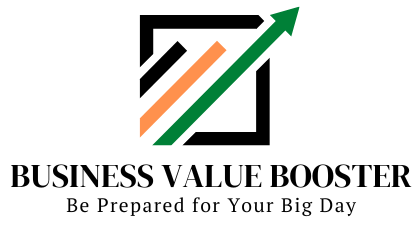The previous post recapped the requirements to repay Federal loans, or at least go through the motions to get them forgiven (where that applies).
If you still have a loan balance, and you are thinking of selling the business, you’re going to have to deal with that loan one way or another. In some cases, owners have fallen prey to the COVID-era assumptions that a politician will swoop in with a magic wand and declare that debts do not have to be paid. You can get away with that as long as you own your business, but no buyer is going to accept it. If you’re not ready to deal with the situation, you may fall prey to Misconception #2.
Misconception #2: My loan is none of the buyer’s business
Basically, that’s true because when you sell a business it is supposed to come free of debt, unless the buyer agrees otherwise. As long as there is no debt hanging over the business, then this statement is absolutely correct, because there is no loan for the buyer to concern themselves with. But that’s not the case.
Simple solution #1: So pay it off now, or let the escrow attorney pay it off with the proceeds of the sale, and we’re done here.
Of course, many sellers don’t want to do that. They want to take the cash for the business and keep the cash from the SBA loan, paying it off over time at that nice low interest rate.
Simple solution #2: You can have your cake and eat at least half of it. Transferring the loan to another entity (the LLC or corporation that buys our business), or substituting a new owner of the current business, is a relatively simple process requiring only a nominal fee and course a creditworthy buyer.
Well, there is also the matter of a buyer who is willing to do this. They won’t do it for free. The payments will reduce the net profit they will earn after buying your business. You will have to offset their payment of your loan with a reduction in seller financing or a reduction in the upfront cash down-payment.
But it won’t be your loan any more. You won’t be responsible for the payments, nor for keeping the business profitable enough to make those payments – or risk losing your house and every other asset you own. Your idea was to sell the business, not to be hostage to it for much of the rest of your life.
Bad solution: Sell the business to the buyer, collect the cash, keep the loan money in your account, and continue paying off the loan. There’s no harm done as long as you do make the payments, which you do intend to do. As long as you do, the odds are that nobody will find out, right? As business owner, you know more than anyone how things that shouldn’t happen, do. Even if you do make the payments faithfully, it’s entirely possible that some random audit process demanded at some future date ends up snagging your transaction. Or perhaps due to injury or some family distraction in some future year, you miss a payment or two and your loan comes to the attention of an investigator. It won’t take long to find out that you are no longer the owner of your former business. That’s just the opening bell. Remember that mention of the collateral for the loan? When you sold the business, you conveyed the assets of your former business to the buyer’s business. You defrauded the government of its collateral, and you defrauded the buyer by selling assets that were not yours to give. Yes, the odds are that by now the assets are greatly depreciated, perhaps near worthless on the books, which would make it all the more ironic if you ended up facing fraud charges over items that had little if any market value. and face them you will. The government is not famous for its sense of humor or irony, and its bureaucrats much prefer to do battle with a target that does not have the means to defend itself.
This is all a bad problem for you, if it works out that way, but the buyer should want nothing to do with it from the outset, because they can get caught up in this too. At the simplest level, if the lending bank comes around to repossess the assets, or even the entire business which they think is still holding the loan, just getting that sorted out is going to create a major interruption in the buyer’s business. Worse, since your loan is a matter of public record that is quite readily accessible to a buyer, let alone their professional support team, the Feds may accuse the buyer of complicity in your scheme. “Trust me, I would never do that” doesn’t sit well when it is preceded by an explanation of how you plan to bamboozle the government.
Bottom line: when you have a business loan, you’re going to need to figure out how to pay it off when you sell the business. Your best outcome is to have the buyer pick up the loan, instead of you having to count on the buyer to run the business well enough to make your seller financing payments for the next several years.
Misconception #3: Having a substantial loan proves how creditworthy the business is
No. It proves how creditworthy the business was, back when the loan was issued.
Your small business doesn’t work using the inverted logic of Wall Street where you can owe so much that the banks can’t afford to call a loan due. On Main Street, banks have the leverage, and things start to get ugly if a loan isn’t paid properly.
Many sellers know that buyers prefer to see a business that have a pre-qualification letter from a bank, preferably for an SBA loan, to prove that the business is strong enough to make a reasonable profit even after taking on a loan. That’s a pre-qualification letter, addressed to the possibility of a byer taking out a new loan, not an actual loan to be issued to you. If you actually did take a loan, buyers are going to want to know how you plan to pay it off before closing, but even more importantly they will want to know why you decided to take it in the first place. They’ll be worried that there is some hidden structural defect in the business model such that the business cannot sustain its own operations without borrowing — i.e., that it is really losing money, not making it, regardless of what the books say.
Hopefully whatever you did with the money generated enough extra revenue to generate even more profit to cover the loan and more. If that is not the case, you’re worse off than you were in the first place, because you aren’t making any more money than before, but you have a long-term obligation to make payments which will constrain other choices you might want to make.
True, if you have the means to pay the loan off, and thereby eliminate your loan payment, then the business will probably be throwing off enough money to afford the buyer’s new loan.
But if you don’t have the cash on hand, you may be unable to sell the business at all until the loan is paid off. Or, as described in the preceding section (Misconception #2), you may be forced to accept “seller financing” in the form of an agreement to pay off your bank instead of paying you.
There is another downside of carrying a loan if you don’t need it, at least during the selling process. Your selling price is largely determined as a multiple of your profitability. As soon as the loan went into action, the profits dropped by the amount of that loan, and they will stay reduced until the loan is paid off. The first thing a buyer will see is that your business grosses, say $2 million and nets $200,000. That sets a price expectation in the $150,000-500,000 range. Yes, you can offset your loan payments from the EBITDA or Seller’s Discretionary Earnings, which might then pop up to $300,000, taking your valuation up to $1 million, but you’re already inviting scrutiny of the financials, not to confirm the details during due diligence but just to be able to make sense of it in the first place. Buyers aren’t interested in financials they have to unravel; they’ll just move on to another alternative.
Bottom line on the business value of having a loan
If you take on debt, make it count for something that will increase profits in the near future. If you’re using it to cover operating expense, you are in deep trouble, and your busines is essentially unsellable. You’ll be lucky to get someone to take it off your hands for free.
If you are currently the holder of a loan on your company and you are planning on selling it any time in the next year or so, you’ll need to start figuring out how to get the loan paid off in the next few months. If not, the value of you business will be reduced by more than the loan value, as the loan retirement will come from either from the cash at the closing table, or “seller financing” as the buyer accepts assignment of the loan. In either case, the buyer is likely to extract additional price concessions for doing you this favor.
But do not think about holding onto that debt under the table, unless all parties, including the lender, are in agreement. Murphy of Murphy’s Law has a seat at the table and may well create long-term nightmares for you.
Want to chat about where your business is and how to make it look its best when you decide to sell it? Pick a time of your convenience at:
https://calendly.com/dbrownpm/30-minute-business-buy-sell





0 Comments